 Vampire Weekend's Surprising Jewish Stories
Vampire Weekend's Surprising Jewish Stories
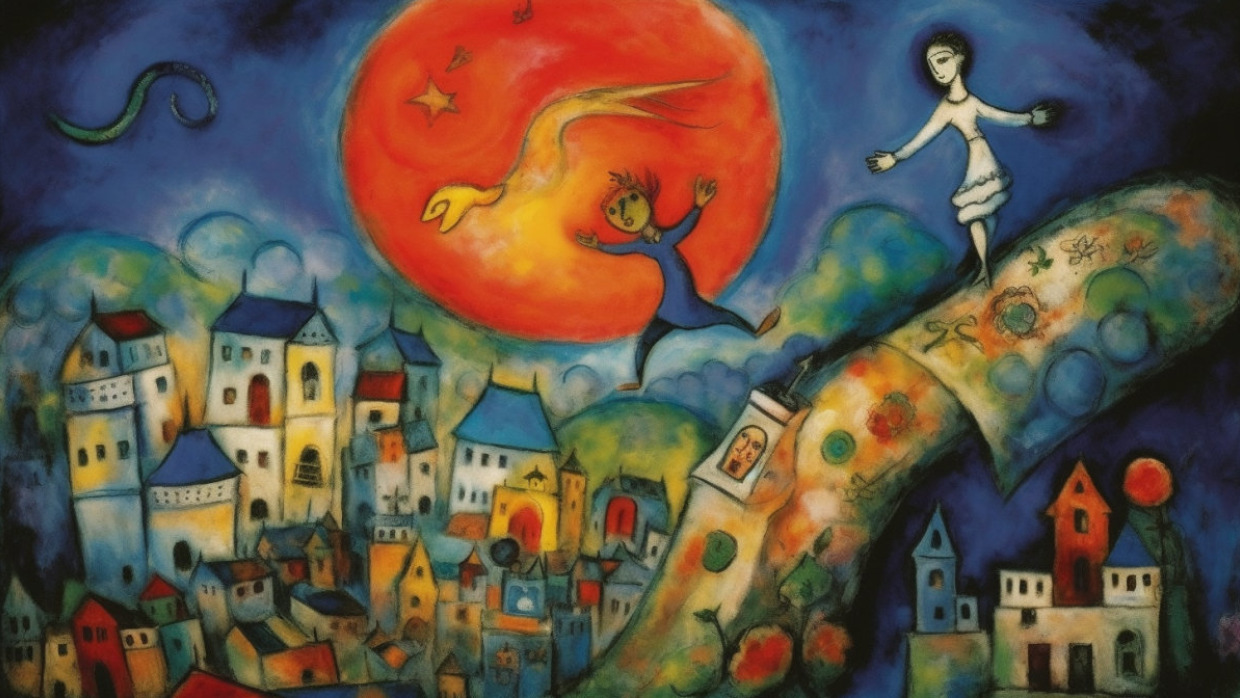

6 min read
Chaya Sara Kramer showed me that saintliness isn’t a matter of miracles or ecstatic states of consciousness.
During the year I lived In India, I knew of many saints. Sathya Sai Baba, who had hundreds of thousands of followers, could perform miracles. In his upturned empty hand, he could materialize ashes in his palm. Anandamayi-ma, who had millions of followers, spent long hours in ecstatic states of consciousness.
Two months after I moved to Israel in 1985, a friend who was planning to compile a spiritual guide to Israel asked me to write a chapter on Israel’s female saints. I gladly agreed. But where would I find them? He smiled and replied that I was on my own to search for them. He explained that in Judaism saints [tzaddikim] are mostly hidden. According to Jewish tradition, the whole world is sustained by 36 hidden tzaddikim. Even if you meet them, you are unlikely to recognize them.
I started asking around and someone told me that Elisheva Buxbaum was in the know. I phoned her. She told me about a man named Reb Yaakov Moshe Kramer living in a ramshackle village in northcentral Israel. “He’s considered by several of Israel’s greatest rabbis to be one of the 36 hidden tzaddikim,” Elisheva disclosed to me. Then she added, “His wife Rebbetzin Chaya Sara is as great as he is.”
I took a two-hour bus ride to the village, where I had arranged to spend Shabbat. My English-speaking contact there filled me in on Rebbetzin Chaya Sara’s background. She had been born to a Hasidic family in the Carpathian Mountains and taken to Auschwitz at the age of 20. There her entire family was murdered and she was experimented on by the infamous Dr. Mengele.
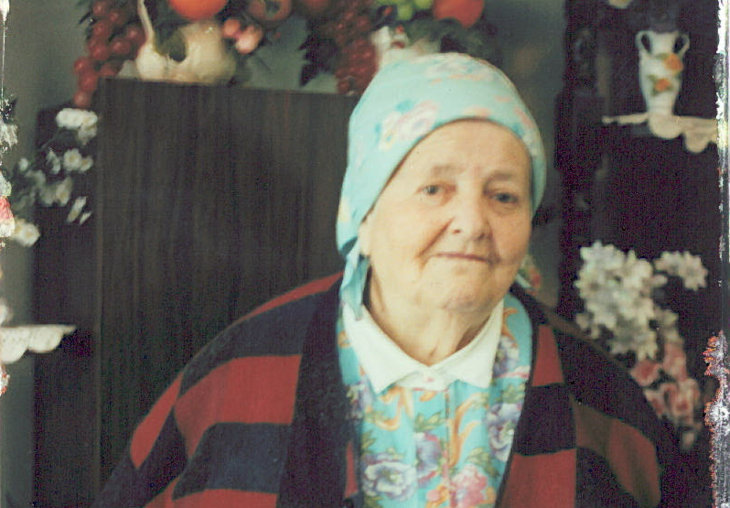
After the war, she made her way to Palestine and married Yaakov Moshe Kramer. They never had any children, but for some 20 years (without pay and without vacations) she took care of numerous brain-damaged children who were left on her doorstep. They lived in abject poverty, eking out a meager income by raising poultry and a few dairy cows.
On Shabbat morning, I went to the community’s bare-bones synagogue. I was the only one in the women’s gallery. Suddenly the door swung open and a stout woman wearing a quilted kerchief and two housedresses, one over the other, walked toward me, smiling broadly, her arms outstretched. She greeted me with a bear hug, like a long-lost daughter.
Then she took my prayer book from my hand. She leafed through it to find Ethics of the Fathers, aphorisms of the sages of two millennia ago. She pointed to a passage and asked me, “Have you ever seen this one?”
I looked at it and broke out into goosebumps. It addressed the foremost issue I was grappling with at that time.
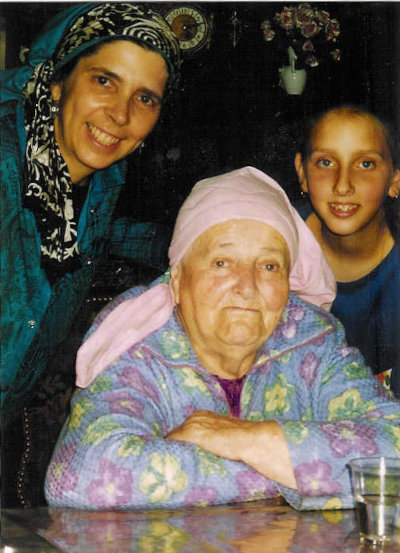 Rebbetzin Kramer with the author
Rebbetzin Kramer with the author
Then she took my prayer book again and turned a few pages. She pointed to another passage, and asked, “Have you ever read this one?” It addressed my second most pressing issue.
I stared at her in consternation. She laughed, then turned and left.
I got it that she could read minds, but what other miracles could she perform?
That afternoon, as arranged, I went to eat the third meal of Shabbat with her. Her husband was not in the country. When I reached their home, I was horrified. They lived in a rundown shack. The walls were bare of plaster or paint. The rough concrete floor had no flooring. The front room had a corrugated tin roof. Its only furniture was a rickety wooden table and several unmatched chairs.
Yet, in the midst of this scene, Rebbetzin Chaya Sara was smiling broadly, delighted to receive me and to share her farmer’s cheese and cucumbers with me.
That was the beginning of my 20-year search to answer the question: How could she be so constantly, radiantly happy when she had nothing ostensibly to be happy about?
And what qualified her as a saint? I knew she prayed, but I never saw her meditate or enter an ecstatic state of consciousness. She performed no glittering miracles.
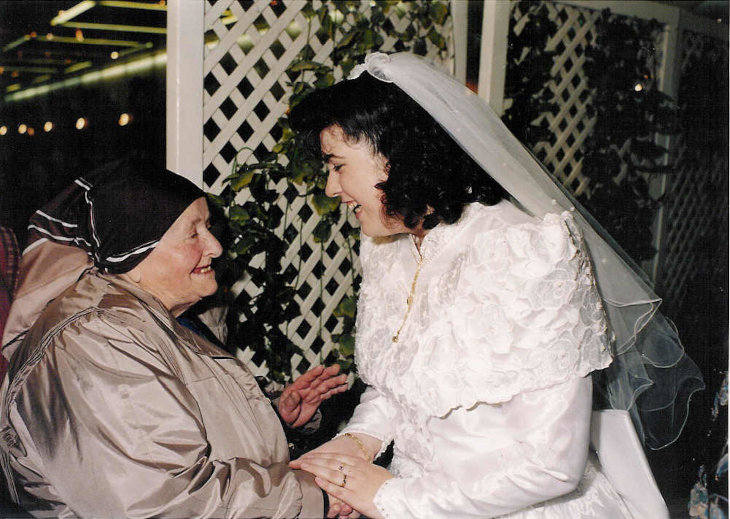
Clearly, she could read minds; she read mine all the time. And in researching the biography I would write about her (Holy Woman), I discovered a case of her promising someone she would have a child after years of childlessness, and in nine months she did. And another case of her promising a man who had lost his job that he would find a better job “with double pay,” and he two days later he did find a new job, with exactly double the salary. My research also revealed many cases of her knowing what would happen at a specified time before it occurred.
However, If I had to identify one thing that qualified Rebbetzin Chaya Sara Kramer as a saint it would be this: her unremitting love for everyone. When I met her, I was a newly-religious American who had just spent 15 years living in a Hindu ashram. But from that first day, she loved me like a daughter. And she saw only the good in me. No, the greatness in me! She used to call me a tzaddeket, a righteous, saintly woman. I knew I wasn’t righteous, but her repeatedly calling me that made me aware of an inner holiness that, if she saw it, must be there.
At the memorial meal held 30 days after her death in 2005, I met for the first time several young Russian immigrant women who had also frequented Rebbetzin Chaya Sara’s home. They told me that she also called each of them a saintly woman.
She lavished honor on every guest who came to her ramshackle home. She literally ran to the door to receive every guest, including the village residents 40 years her junior whom she saw daily. Tamar Cohen, a local housewife, told me that whenever she came to their door, even to borrow a cup of sugar, Chaya Sara would announce to her husband, as if an important personage had graced their abode, “Dear Mrs. Tamar Cohen has arrived.”
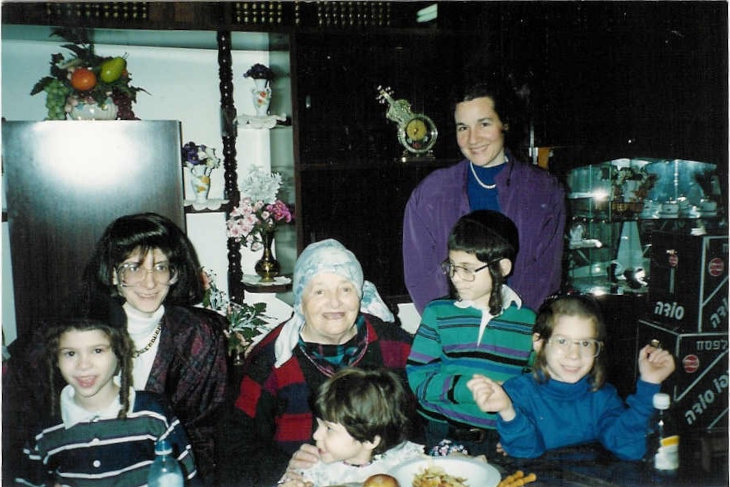
Chaya Sara made no distinctions on whom she showered love and honor. Ashkenazim and Sephardim, rich and poor, religious and nonreligious, old and young, veterans and new immigrants—she showed the same solicitude to each one.
I learned from her that in Judaism saintliness is not a matter of miracles or ecstatic states of consciousness. Saintliness is a matter of how much you love.
The yahrzeit of Rebbetzin Chaya Sara Kramer falls on Monday night/Tuesday, May 21/22. Please light a candle for Chaya Sara, the daughter of Mendel Yosef.
